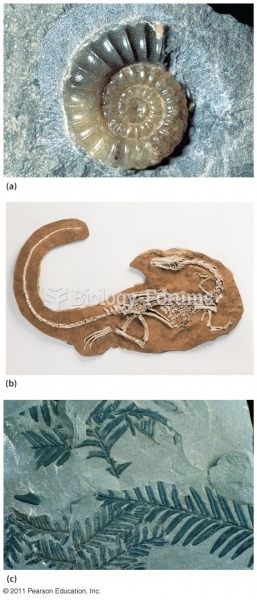|
|
|
As of mid-2016, 18.2 million people were receiving advanced retroviral therapy (ART) worldwide. This represents between 43–50% of the 34–39.8 million people living with HIV.
This year, an estimated 1.4 million Americans will have a new or recurrent heart attack.
Chronic necrotizing aspergillosis has a slowly progressive process that, unlike invasive aspergillosis, does not spread to other organ systems or the blood vessels. It most often affects middle-aged and elderly individuals, spreading to surrounding tissue in the lungs. The disease often does not respond to conventionally successful treatments, and requires individualized therapies in order to keep it from becoming life-threatening.
The training of an anesthesiologist typically requires four years of college, 4 years of medical school, 1 year of internship, and 3 years of residency.
Stevens-Johnson syndrome and Toxic Epidermal Necrolysis syndrome are life-threatening reactions that can result in death. Complications include permanent blindness, dry-eye syndrome, lung damage, photophobia, asthma, chronic obstructive pulmonary disease, permanent loss of nail beds, scarring of mucous membranes, arthritis, and chronic fatigue syndrome. Many patients' pores scar shut, causing them to retain heat.
 Administration of abdominal thrusts (the Heimlich maneuver) to (A) a conscious victim and (B) an unc
Administration of abdominal thrusts (the Heimlich maneuver) to (A) a conscious victim and (B) an unc
 Brushing off to finish-front. Move to the front and place the person’s hands on his or her knees. ...
Brushing off to finish-front. Move to the front and place the person’s hands on his or her knees. ...





